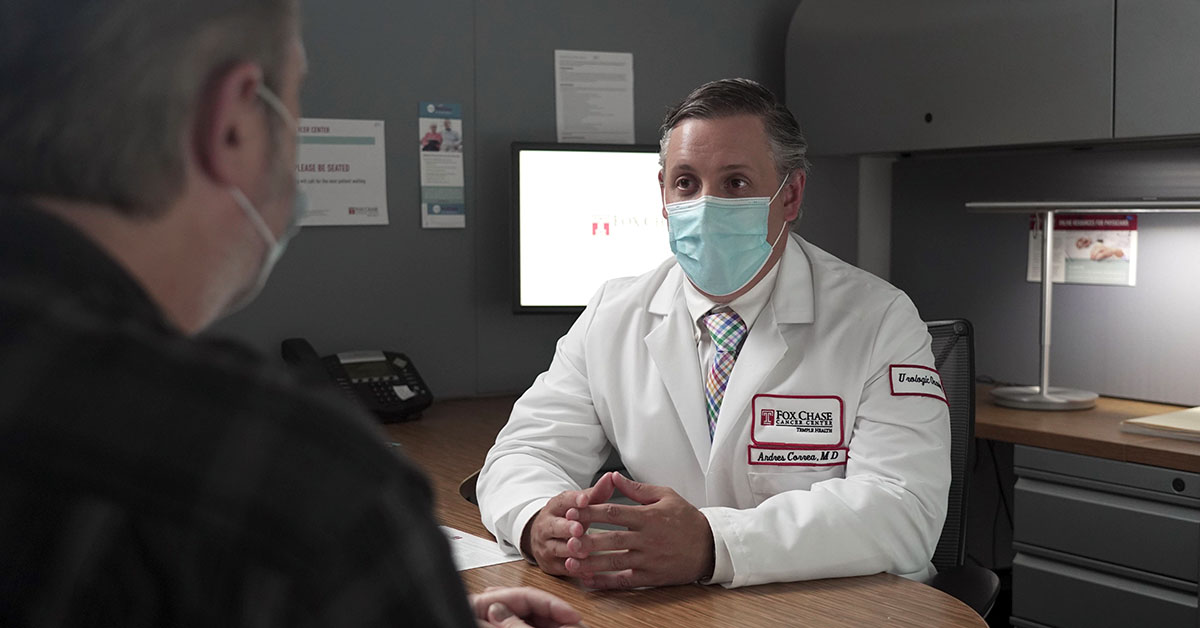
PHILADELPHIA (June 8, 2021)—Researchers at Fox Chase Cancer Center have developed a model that predicts disease recurrence and survival in patients with kidney cancer more accurately than other models currently in use.
Accurately predicting early disease progression is particularly important because it helps doctors identify which patients to follow more closely and treat with adjunctive therapies to prevent the disease from recurring, and which patients can be spared from unnecessary treatments and follow-up visits.
Historically, oncologists have used the American Joint Committee on Cancer tumor-node-metastasis (TNM) staging system to give a cancer prognosis to patients. However, TNM staging is broad and groups patients into large categories, which means that predictions about their cancer progression are not very individualized.
To try and improve accuracy for individual patients, statistical models have been developed to incorporate more detail—like a patient’s age and their tumor characteristics—into the process.
“When we carefully analyzed the current models utilized for prediction of renal carcinoma recurrence and validate them using the ASSURE data set, a contemporary data set that comes from a clinical trial, we showed that the current models are actually not that superior to standard TNM staging,” said Andres F. Correa, MD, an assistant professor in the Division of Urology and Urologic Oncology at Fox Chase.
Where these models fall short is that they rely on retrospective, or historical, patient data that spans multiple years and even decades. Yet medicine and treatment options are continually advancing, so models that must account for these variations over time introduce bias, which affects accuracy.
To get rid of these biases and improve accuracy, Correa, along with Robert G. Uzzo, MD, MBA, FACS, chair of the Department of Surgical Oncology, and other ASSURE collaborators developed the ASSURE RCC Prognostic Nomogram using data from the ASSURE trial. By using clinical trial data, the researchers ensured that, unlike other models, all inputs into this model were standardized and treatment options did not vary over time.
The ASSURE model yields three predictions for patients who have undergone surgery for localized kidney cancer. The first is early disease progression, which is the likelihood of the cancer recurring within 12 months. The second is disease-free survival, which is the likelihood of the cancer returning and the patient dying of it. The third is the overall chance that the patient will die of any cause.
Most other models considered only a single cancer histology, for example conventional renal cell carcinoma, which is the most common histology. The new model encompassed all possible histologies for kidney cancer.
Finally, the researchers developed their model so that it does not require a patient’s TNM stage as a variable. Eliminating this variable makes the model easier to use in the future, because TNM staging changes over time due to advances in science and changes in the disease.
The Assure RCC Prognostic Nomogram is being externally validated and is in use at Fox Chase. It can be publicly accessed on the Fox Chase Cancer Nomograms website.
The model’s development is detailed in the paper “Predicting Disease Recurrence, Early Progression, and Overall Survival Following Surgical Resection for High-Risk Localized and Locally Advanced Renal Cell Carcinoma,” which was published in European Urology.